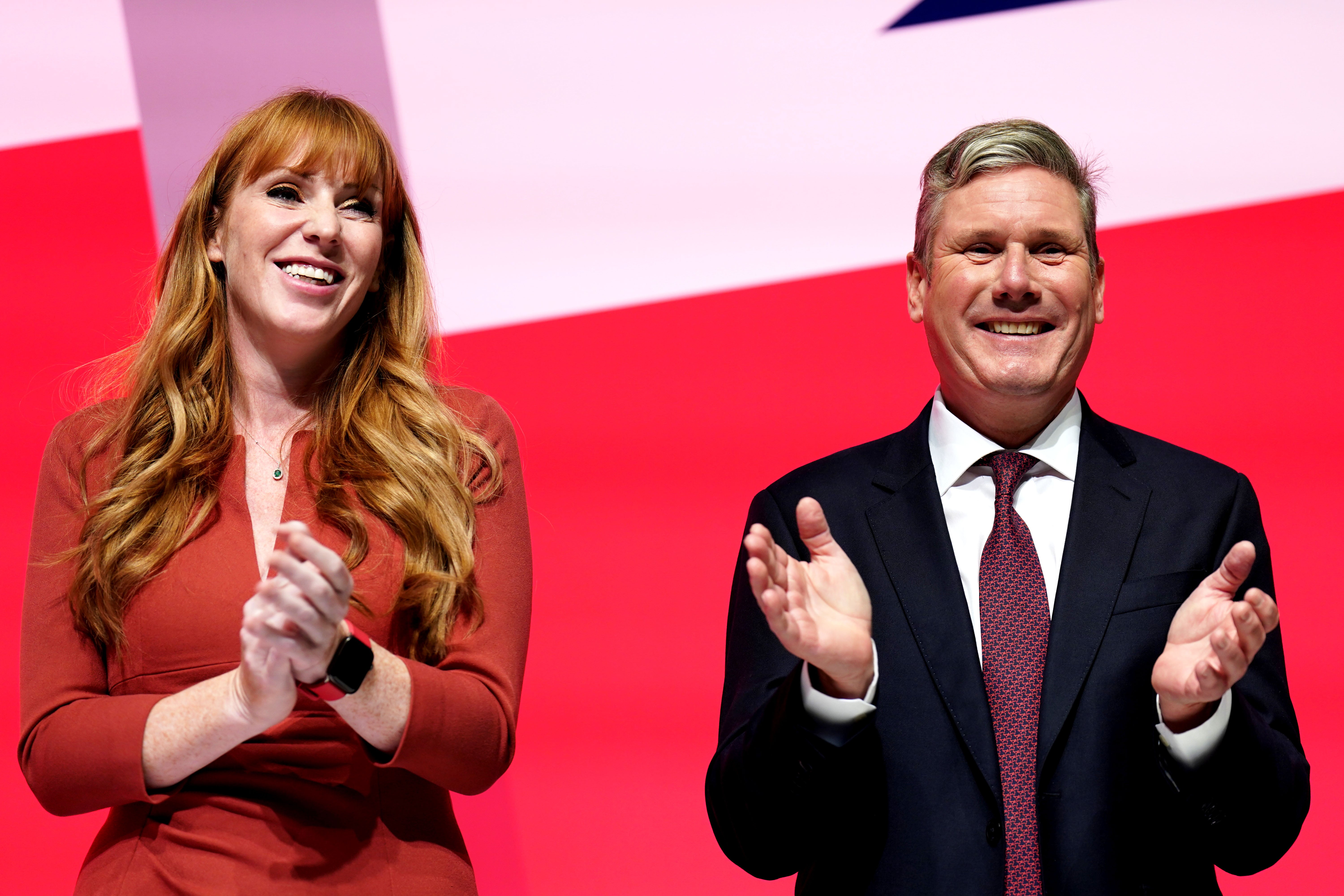The Tories are losing – but that does not guarantee a Labour victory
Starmer is benefiting from an anti-Tory vote rather than a positive vote of confidence in Labour’s prospectus, writes Andrew Grice


The Tory government has thrown away its traditional reputation for economic competence after a financial meltdown that sent interest rates soaring. The prime minister is not in control of events or her party. The Labour opposition is more than 20 points ahead in the opinion polls and on course for power after a long period in the wilderness.
True today, and also true in 1995-97. The last time the financial markets lost confidence in a Tory government was on “Black Wednesday” in 1992, when the UK was ejected from the European exchange rate mechanism. Labour won a landslide five years later with the same 10 per cent swing Keir Starmer needs to secure an overall majority.
The strong parallels between then and now were noted by figures in both main parties during their annual conferences. Again, Labour is increasingly confident of election victory and many Tories are resigned to defeat. “We are toast,” a former cabinet minister told me. “Sometimes, a government just runs out of steam.”
Yet there are also important differences with the mid-1990s. Starmer is not Tony Blair. Until recently, he didn’t enjoy a big lead on “who is the best prime minister?” in the way Blair did; polls often found more voters said “don’t know” than naming him.
No party has won an election in the past 30 years without being ahead on economic competence and the issue looks likely to dominate the next one. Labour recently ended the lead the Tories had enjoyed since 2008. But Starmer’s party has not yet secured the advantage it enjoyed when Gordon Brown cemented a reputation for fiscal prudence as shadow chancellor. In the 1990s, Labour got booster rockets from two events – “Black Wednesday” and the election of Blair as leader in 1994. It is not going to get a new leader before the next election.
True, the most recent polls are calamitous for Truss, who is now more unpopular than Boris Johnson ever was. If there is no improvement, Tory MPs might try to depose her by Christmas.
However, Labour has not yet persuaded voters it would do any better than the Tories. Starmer is benefiting from an anti-Tory vote rather than a positive vote of confidence in Labour’s prospectus; the public doesn’t yet know what that is.
The Tories’ implosion at their Birmingham conference will encourage Labour’s “safety first” tendency to continue to play it safe. With Truss promising that “change” will mean “disruption”, Starmer’s “boring” label and natural caution might look attractive to voters – and business leaders – for whom a period of stability would be welcome.
Yet I think such an approach would be risky for Labour. As one senior party figure told me: “Many people will not vote Conservative, and Labour will be the beneficiary. But is that because they feel they know what Labour is, what it will do and have faith in it? Not yet.”
Labour has a goldmine of material with which to attack the Tories and was handed more gifts at the Tory conference. But it is dawning on shadow cabinet members that they would have a rotten inheritance if they won power. The current turmoil makes it harder for Labour to square having tougher fiscal rules than the Tories with its commitments to improve public services.
Whoever wins in 2024 would probably have to raise taxes afterwards. Truss is not going to admit that; she wants “Tory tax cuts versus Labour’s tax rises” as the dividing line. The mood among Tories in Birmingham was that her only chance of victory is for the economy to grow by about two per cent in 2025, so she could ask voters to let her “finish the job”. It’s the traditional antidote of a governing party to an opposition’s “time for change” message.
Labour needs to answer the “change to what?” question. For now, the party emphasises its commitment to “sound money” but is coy about what it would do on tax. It will need to say more before the election.
If Starmer gets it right, the prize could be greater than his party dared to dream about. Until recently, most Labour figures thought a hung parliament and minority Labour government would be as good as it could get. That outcome would be messy and probably require another election within two years. But suddenly, the prospect of an overall majority is not a fantasy.
To keep up to speed with all the latest opinions and comment, sign up to our free weekly Voices Dispatches newsletter by clicking here
Indeed, many Tories are resigned to losing power; privately, a few say they would welcome it, so the party can resolve its internal ideological battle between Truss’ libertarian sect and the majority who value society as well as freedom. Truss’ uncompromising approach ensured the schism was on full display at the Tory conference; she has discovered it is destabilising to have such a “debate” while in government.
Even though the exhausted Tories have run out of steam after 12 years in power, that does not guarantee a Labour victory. The maxim that governments lose elections is often right, but oppositions still need to win them.






Join our commenting forum
Join thought-provoking conversations, follow other Independent readers and see their replies
Comments